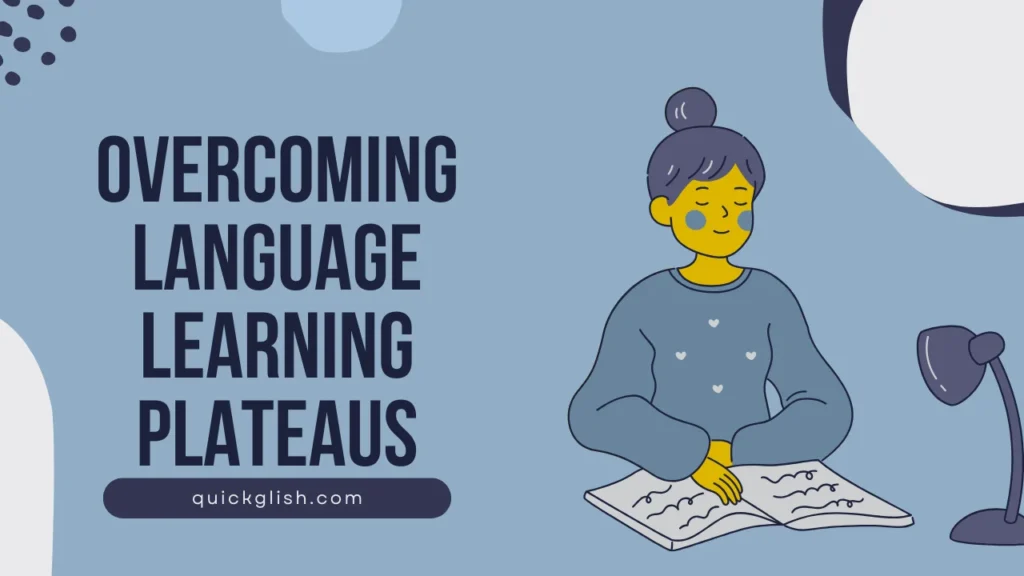Language learning is an exciting journey filled with discovery and progress. However, many learners encounter a common challenge along the way: the dreaded language learning plateau.

In this blog post, we’ll explore what language learning plateaus are, why they occur, and most importantly, how to overcome them to continue your journey towards language proficiency.
Understanding language learning plateaus
A language learning plateau is a phase in your language acquisition journey where you experience a temporary slowdown or even a halt in progress. During this period, learners often find themselves stuck at a certain level, facing difficulties in advancing their skills despite consistent efforts.
Why do plateaus occur?
Several factors contribute to language learning plateaus:
- Comfort zone syndrome: Learners may become comfortable with their current level of proficiency, leading to a reluctance to tackle more challenging aspects of the language.
- Repetitive learning: Relying solely on repetitive exercises without introducing new and varied learning methods can hinder progress.
- Lack of motivation: A decline in motivation or interest can contribute to a plateau. Learners may lose sight of their goals or feel overwhelmed by the effort required.
Overcoming language learning plateaus
- Set new goals:
- Define clear, achievable goals to reignite your motivation.
- Break down larger objectives into smaller, manageable tasks to make progress more tangible.
- Diversify your learning methods:
- Incorporate diverse resources such as podcasts, movies, and literature to expose yourself to different aspects of the language.
- Explore new language apps or platforms that offer varied exercises and activities.
- Challenge yourself:
- Step out of your comfort zone by tackling more advanced topics or engaging in conversations with native speakers.
- Embrace complexity; don’t be afraid to make mistakes, as they are crucial for growth.
- Track your progress:
- Keep a language learning journal to document your achievements and identify areas for improvement.
- Celebrate small victories, and reflect on how far you’ve come since you started.
- Seek feedback:
- Engage with language communities, language exchange partners, or teachers to receive constructive feedback.
- Use feedback as a tool for improvement rather than a source of discouragement.
- Take breaks when needed:
- Sometimes, a brief break can rejuvenate your mind and help you return to your studies with renewed energy.
- Use this time to explore related interests or cultural aspects of the language.
- Visualize success:
- Create a vision board or mental images of achieving language fluency to reinforce your commitment.
- Visualizing success can be a powerful motivator during challenging periods.
Language learning plateaus are a natural part of the language acquisition process. Embracing them as opportunities for growth and implementing proactive strategies will empower you to overcome obstacles and continue progressing. Remember, perseverance, a diversified approach, and a positive mindset are key to breaking through language learning plateaus and reaching new heights in your language proficiency journey. Keep moving forward, and the rewards of fluency will be well worth the effort.






